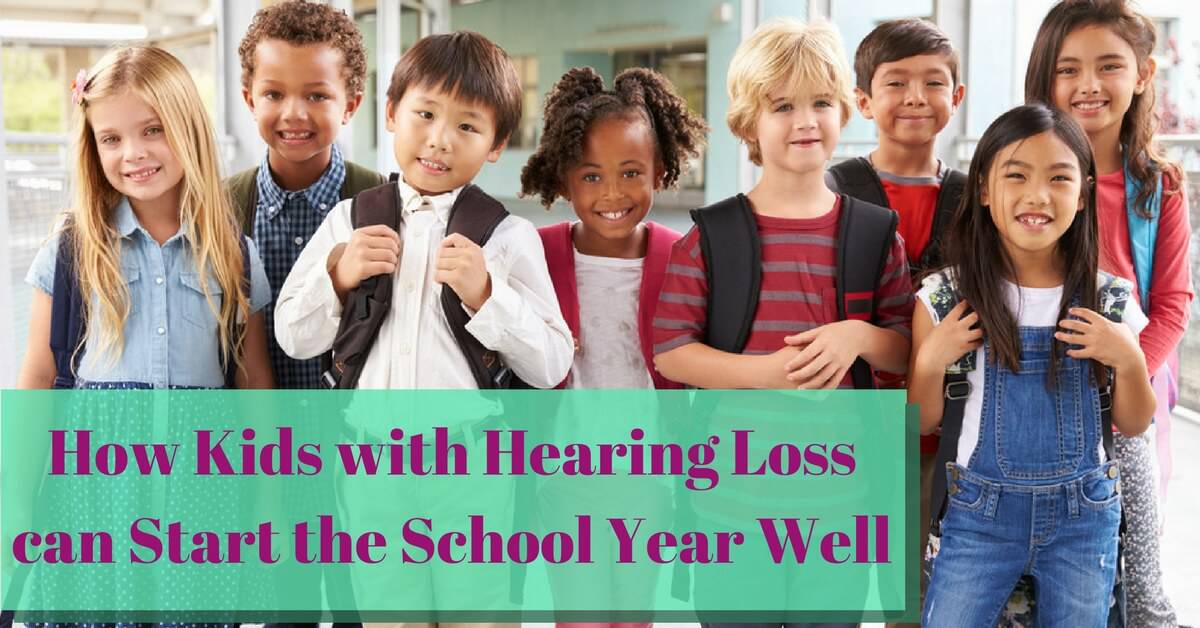
Hearing loss can make school life challenging for children. Parents can have many concerns over how hearing loss will affect their child’s educational and social success.
As a parent, you are best qualified to know how your individual child communicates, listens and learns, their levels of confidence and self-esteem, and how they cooperate, participate, and react in social situations.
Questions, Questions
Is your child experiencing speech or language issues? Does your child have obvious learning delays? What is your child’s level of hearing loss? Is your child learning sign language? Do you have trouble keeping your child from removing hearing aids?
These are only some of the many questions parents alone have the answers to when their child is ready to begin school. This means that parents are at the top end of what will be a team building experience to help the child flourish in the educational environment.
Fortunately, there are many resources for parents with hearing-impaired children as they ready their child for school.
Teamwork
From this point on, many people will play a part in in your child’s educational journey and successful outcome. About 75% of children with hearing loss are now mainstreamed into public schools, and about half of those spend most of the day in a “hearing” classroom. There are many professionals whose job it is to collaborate with parents and school personnel to help optimize the children’s opportunities in school and beyond.
For the purposes of this article, we are outlining some of those resources and tools.
Hearing Loss Levels and Potential Effects in a Classroom Setting
Below is a link to a useful handout that summarizes effects of hearing loss on classroom learning, one page per hearing loss level defined by dB ranges. If a child has different loss levels in each ear, choose the handout for the better hearing ear. This will help parents and teachers determine the need for educational supports.
Read more here.
Socialization
A reported 20% of all children starting kindergarten do not have the social skills needed for school success. Children with hearing loss face extra challenges in this respect, because they can miss subtle social clues and incidental language, and are typically delayed in social communication. This link is a Pragmatics Checklist to see how your child is faring in social skills compared with other children the same age. This will be handy to share with your child’s school team.
Speech and Language Markers
This online interactive checklist is called a Progress Checker, written by speech and language therapists, based on typical milestones. This guide may help to determine your child’s overall communications and can be helpful in pointing out possible issues to address for your school team. It is not considered to be a diagnostic test.
Transitioning from the Home Environment
This tool, known by the acronym “CHILD”, is for families to use as early as age 3. It rates your child’s listening behaviors and patterns and points out which areas present extra challenges. This may be useful for transitioning to the school environment, assisting families in making changes to help your child become a more assertive communicator, or identify the need for assistive devices.
Issues to Share with the School Team
This tool collects the information in the above link, referred to as CHILD, in a form that combines with results of the school’s assessment records, to determine placement, classroom accommodations, and skill-building needs. Starting School Life
Adaptations on Behalf of the School for Support of Hearing Loss Learners
This is an overview of accommodations and expectations that the school team can address to meet your child’s challenging learning and listening needs.
Functional Ability Screening
The Preschool Sifter, linked here, is an assessment typically completed by the teacher at the request of the hearing professional on the school staff. It compares the child’s abilities to typically developing class peers in kindergarten. The areas assessed are Pre-academics, Attention, Communication, Participation in Class, and Social Behavior. This can be repeated periodically to monitor progress and performance.
Multidisciplinary Team
There are many different professionals who can play a part in assuring your hearing-impaired child’s needs in the educational arena. Parents and teachers, in partnership with Speech Therapists, Occupational Therapists, Educational Audiologists, and Classroom Interpreters, can all work in concert to create and support an optimum learning environment for your child throughout their educational experience.
My Hearing Centers
My Hearing Centers cares about your child and their education. Reach out to us anytime by calling (877) 330-2920 or click below to be connected with one of our many locations.
Contact Us